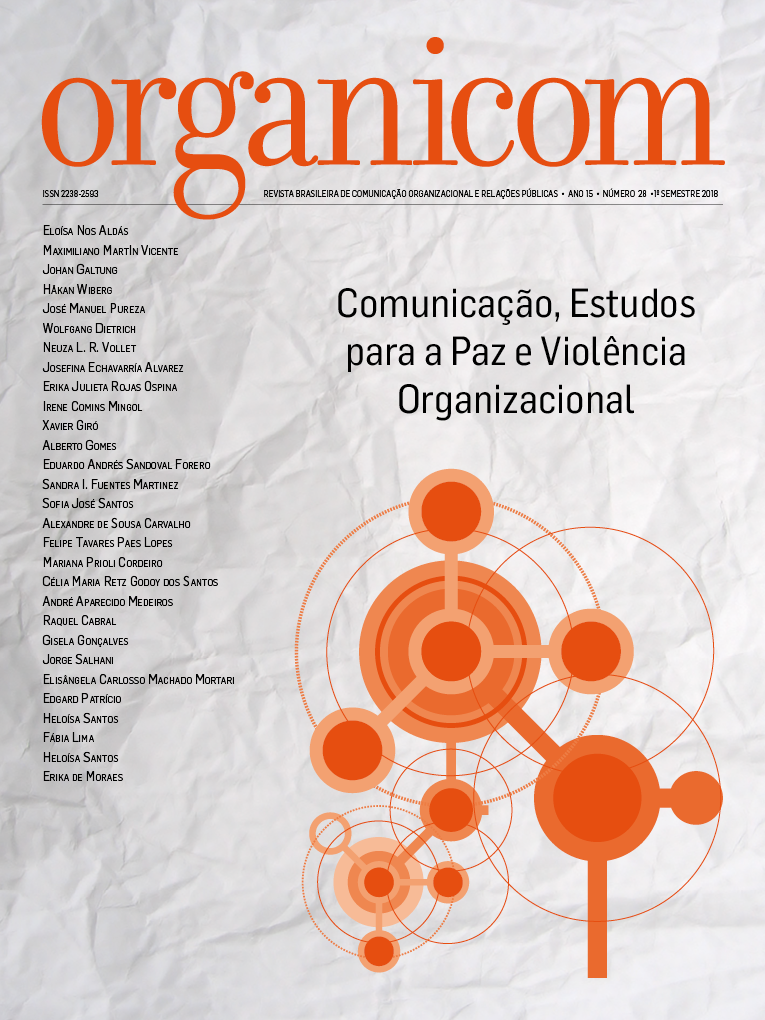Teorias da comunicação, transferência do conhecimento e implicações na subserviência dos sujeitos nas organizações
DOI:
https://doi.org/10.11606/issn.2238-2593.organicom.2018.150575Palavras-chave:
Teorias da comunicação, Transferência do conhecimento, Gestão do conhecimento, Análise crítica do discursoResumo
Este artigo reflete sobre estudos de transferência de conhecimento nas organizações, denunciando como certas concepções podem encobrir postulados que coisificam o homem e abrem caminho para a naturalização de correntes teóricas e práticas de subserviência ao modelo produtivo capitalista, que são reproduzidas e integram a cultura organizacional. O artigo defende que os estudos de comunicação organizacional podem e devem contribuir para desconstruir premissas que integrem a sutil rede de violências simbólicas que pautam relações sociais, objetos de pesquisa e práticas organizacionais.
Downloads
Downloads
Publicado
Edição
Seção
Licença
A submissão implica a cessão de direitos da primeira publicação à revista Organicom, sem pagamento. Os autores podem estabelecer por separado acordos adicionais para a distribuição não exclusiva de versão da obra publicada na revista (como colocar em um repositório institucional ou publicar um livro), com o devido reconhecimento de sua publicação inicial na revista Organicom.


